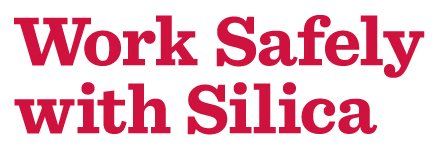Cold Days Ahead: Are You Ready?
 Our Western regions have been blanketed in snow for weeks -- and after a mild December in much of the East, winter weather is finally moving in. Are you ready? While much construction will wind down for the coldest months, new technologies - such as chemical additives that allow concrete to cure in low temperatures - allow work to go forward on some jobs even during a deep freeze. That means a lot of workers will face extreme weather in January and February.
Extended exposure to freezing or cold temperatures can lead to trench foot, frostbite and hypothermia. Danger signs for hypothermia include uncontrolled shivering, slurred speech, clumsy movements, fatigue, and confused behavior. If you must tackle an outdoor job in cold weather, what can you do to keep workers safe?
- Encourage workers to wear proper clothing for cold, wet, and windy conditions. Layer clothing to adjust to changing temperatures.
- Use the buddy system; work in pairs so that one worker can recognize danger signs.
- Drink warm, sweet beverages (sugar water, sports-type drinks) and avoid drinks with caffeine (coffee, tea, sodas or hot chocolate) and alcohol.
To get the whole story, visit CPWR online and download our toolbox talk on Cold Weather Safety. To learn about some products and techniques for frigid jobsites, check out our recently recorded informational webinar on Construction Solutions and cold hazards.
|
CPWR WEBINAR
A Jobsite Safety Recognition and Communication Program
January 20th @ 2:00pm (ET), 30 min. -- Building Safety for Everyone is a worksite-based program that utilizes Predictive Solutions to recognize safe physical working conditions and practices from safety assessments and provide feedback to foremen and workers. It is an innovative safety recognition and communication program that works to positively influence on-site safety climate by facilitating teamwork and collaborative competition. Dr. Jack Dennerlein of Northeastern University will present on the creation of the program and how it might be implemented on the worksite. CLICK TO REGISTER
|
CPWR IN PRINT
Recently Published Journal Articles by CPWR Scholars
Reduction of biomechanical and welding fume exposures in stud welding. Nathan Fethke, Thomas Peters, Stephanie Leonard, Mahmoud Metwali and Imali Mudunkotuwa. Annals of Occupational Hygiene, November 2015.
Silica measurement with high flow rate respirable size selective samplers: A field study. Taekhee Lee, Martin Harper, Michael Kashon, Larry A. Lee, Catherine B. Healy, Marie A. Coggins, Pam Susi and Andrew O'Brien. Annals of Occupational Hygiene, November 2015 (published online ahead of print). |
|
|
|
ONLINE RESOURCES

Find the latest on regulatory efforts and Create-A-Plan to control exposures at Work Safely with Silica -- a one-stop source of information on how to prevent a silica hazard and protect workers

eLCOSH is the premier online source for construction health and safety information, with research, training materials, fact sheets and more

Construction Solutions is a safety and health database designed with construction contractors and workers in mind - an inventory of common industry hazards paired with common-sense solutions

Visit CPWR for information on our training programs, research findings, and resources for your health and safety or research initiatives
|
|

|
|
|
ABOUT US CPWR -- The Center for Construction Research and Training is a 501(c)(3) non-profit organization created by North America's Building Trades Unions, AFL-CIO. Working with partners like you in business, labor, government, and the universities, we strive every day to make work safer for the ten million men and women who work in the U.S. construction industry!
|
|
|